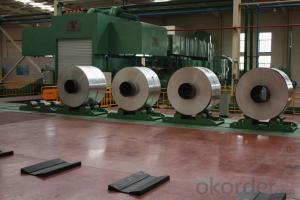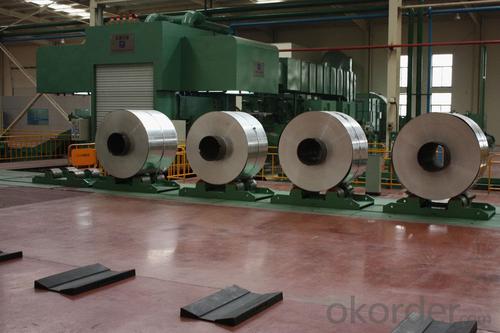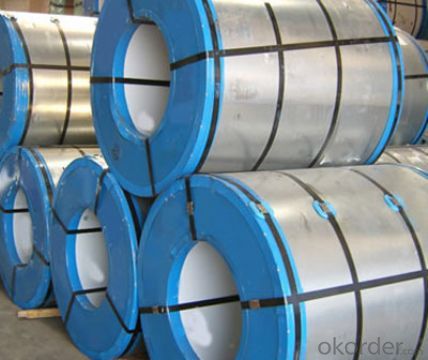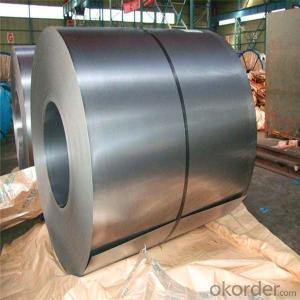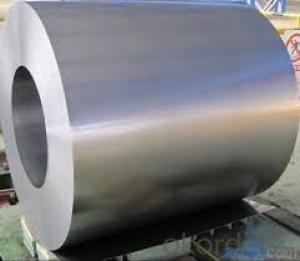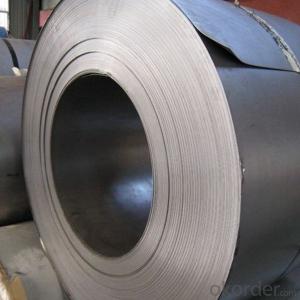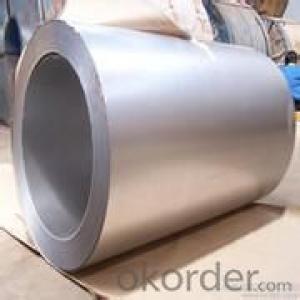Cold Rolled Steel Sheets Coil CRC SGCC,SPCC,SPHC high quality
- Loading Port:
- Tianjin
- Payment Terms:
- TT OR LC
- Min Order Qty:
- 50 m.t.
- Supply Capability:
- 10000 m.t./month
OKorder Service Pledge
OKorder Financial Service
You Might Also Like
SPCC cold rolled steel coil
Product Description :
CRC cold rolled steel coil
1.Standard | JIS, DIN, ASTM |
2.Grade | SPCC DC01 ST12 SAE1008 For more grades,please contact us. |
3.Thickness | 0.4mm-2mm |
4.Width | 1,000mm, 1,200mm, 1,250mm |
5.Place of origin | China |
6.Brand | HUAYE |
7.Model | DC01 |
8.Type | Steel coil and Sheet |
9.Technique | Cold rolled |
10.coil weight | 3tonn-15ton |
11.Application | Constructions, white appliance manufacturing, etc |
COLD ROLLED STEEL COIL
THICKNESS: 0.20mm-1.8mm
WIDTH:1000mm-1250mm
SURFACE: BRIGHT ANNEALED, CUTTING EDGE, MATT FINISH
STANDARD:JIS G 3141 SPCC
COIL ID: 508mm/610mm
COIL WEIGHT:5-10 ton
PACKAGE: COIL TO BE WRAPPED WITH ANTI-RUST PAPER PLUS METAL COVER WORTHY FOR SEA TRANSPORTATION
TERMS OF PAYMENT: 20% ADVANCED PAYMENT BEFORE PRODUCTION,SELLER RELEASE THE SHIPPING DOCUMENTS AFTER RECEIPT BUYER’S 80% PAYMENT
LABEL INFORMATION:As per customer's request.
Our advantage :
1. Expertise:
10 years of manufacture: we know how to properly handle every step of production.
2. Competitive price:
We produce resin and paint by ourself, which greatly reduce our cost!
3. Accuracy:
We have a technician team of 40 people and a QC team of 30 poeple, ensure our products is exactly what you want.
4. Materials:
All color Steel Sheets are made of high-quality raw materials.
5.Certificate:
Our products are certified by TUV, ISO9001:2008,ISO14001:2004 etc.
6. Productivity:
We have three large-scale production line, to guarantee all your orders will be finished in earlist time
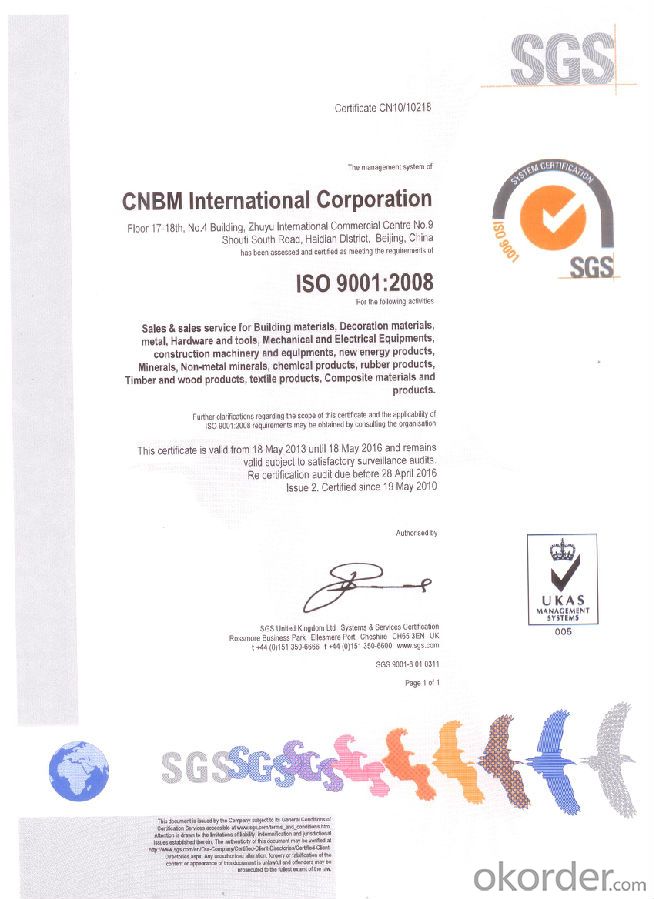
- Q: I understand that damascus sword steel was made by folding the strip of steele double , reheating, hammering, folding again and so forth hundreds of times. Was this the same or very nearly the same techmique the japs used making the sword blades the samari swords?(forgive the misspelling)
- Actualy, the secrets of forging Damascus steel has been rediscovered. In the 1970s, a Russian scientist found that he could duplicate the steel found in old Damascene swords. While it is true that such swords (which have to be made by hand) would be more expensive than usual, you must keep in mind that the majority of Damascus swords are still forged in Damascus. Syria is a highly inexpensive country, and the price of a Damascus blade, while being expensive to Syrians, would be cheap to Westerners. In reference to your question about wether there is anything special about Damascus steel, the answer is yes. At the time of its creation, Damascus steel was the lightest and most flexiable metal known to man, even lighter than the steel Katana swords used by the Samurai of Japan. During the Crusades, Europeans reported that the Arab blades were capable of bending in the wind, and floating on water. While these are certainly exaggerations, they are proof that Damascus blades were far lighter and stronger than the crude iron weapons used by the Crusaders.
- Q: What is the lifespan of coated steel coils?
- The lifespan of coated steel coils may differ based on various factors, including the coating type and quality, the environmental conditions they face, and the care and maintenance provided. Typically, high-quality coated steel coils can last 25 to 50 years or longer. However, it is important to note that this estimate is not definitive and the actual lifespan may vary. To significantly extend the lifespan of coated steel coils, it is essential to conduct regular inspections, ensure proper installation, and perform timely maintenance. Moreover, exposure to severe weather, corrosive environments, and improper handling can potentially shorten the lifespan. Consulting with manufacturers or industry experts is recommended to determine the most suitable coating and expected lifespan for specific applications.
- Q: What are the different types of welding used for steel coils?
- Steel coil fabrication involves the utilization of various welding techniques, each catered to specific requirements and applications. Here, we present some commonly employed welding methods for steel coil fabrication: 1. Stick welding, also known as Shielded Metal Arc Welding (SMAW), utilizes a flux-coated electrode and an electric current to generate an arc between the electrode and the base material. SMAW is a versatile and extensively used technique suitable for a range of steel coil applications. 2. Gas Metal Arc Welding (GMAW), also referred to as MIG (Metal Inert Gas) welding, employs a continuous wire electrode and a shielding gas to safeguard the weld pool against atmospheric contamination. GMAW is renowned for its high welding speed and ease of automation, making it a favored choice for steel coil manufacturing. 3. Flux-Cored Arc Welding (FCAW) shares similarities with GMAW, but employs a tubular electrode with flux inside. The flux serves as both the shielding gas and added alloying elements, resulting in enhanced efficiency and weld quality. FCAW is often employed for high-speed welding applications in steel coil fabrication. 4. Gas Tungsten Arc Welding (GTAW), also known as TIG (Tungsten Inert Gas) welding, employs a non-consumable tungsten electrode and an inert gas, typically argon, to protect the weld area. GTAW delivers high-quality, precise welds with exceptional control over heat input, rendering it suitable for thin steel coil materials and critical welding scenarios. 5. Submerged Arc Welding (SAW) involves the use of a continuously fed wire electrode and a granular flux that covers the weld area. The arc is submerged beneath the flux, providing excellent protection and minimizing the need for post-weld cleaning. SAW is commonly employed for welding thick steel coils due to its high deposition rates and deep penetration capabilities. These examples highlight the diverse range of welding techniques employed in steel coil fabrication. The selection of the appropriate welding method depends on factors such as the specific steel grade, thickness, desired weld quality, production speed, and cost considerations. It is crucial to choose the suitable welding technique to ensure the longevity and performance of steel coils across different applications.
- Q: How do steel coils contribute to the manufacturing of household appliances?
- Steel coils are an integral component in the manufacturing of household appliances. These coils, made from high-quality steel, play a crucial role in providing the necessary strength and durability required for the production of various appliances. One of the primary uses of steel coils in household appliances is in the construction of the appliance's body or frame. The coils are shaped and formed into the desired structure, providing a sturdy foundation for the appliance. This ensures that the appliance can withstand the rigors of everyday use and remain intact for an extended period. Moreover, steel coils are also used in the manufacturing of various components within household appliances. For example, in refrigerators and air conditioners, steel coils are utilized in the condenser and evaporator coils, which are responsible for the heat exchange process. These coils allow for efficient cooling or heating, ensuring optimal performance of the appliance. Furthermore, steel coils are also employed in the production of appliance interiors, such as oven racks, dishwasher baskets, and laundry machine drums. The strength and resistance provided by the steel coils help these components withstand heavy loads and repeated use, enhancing the overall longevity and reliability of the appliance. Additionally, steel coils contribute to the aesthetic appeal of household appliances. They can be shaped, molded, and coated to achieve various finishes, colors, and textures, enhancing the visual appeal of the appliance and making it more attractive to consumers. In summary, steel coils are crucial to the manufacturing of household appliances as they provide strength, durability, and resilience to the appliance's structure, components, and interiors. They play a vital role in ensuring the performance, reliability, and longevity of these appliances, making them an indispensable part of the manufacturing process.
- Q: Does anyone know how to make a steel helmet, or does anyone know where to direct me websites-wise? i've just started looking on the web for info, so when i get back here i might've already found some info, but more wouldn't hurt, especially if from people who are interested on the subject. i know nothing about metallurgy, nothing on the art of metal working etc... please help.
- Steel okorder
- Q: What is the role of steel coils in the manufacturing of bridges?
- Steel coils play a crucial role in the manufacturing of bridges as they are used as the primary material for constructing the structural components of the bridge, such as beams, columns, and girders. These coils are manufactured by rolling steel into flat strips, which are then wound into large coils. The high strength and durability of steel make it an ideal choice for bridge construction, as it can withstand heavy loads, extreme weather conditions, and provide long-lasting support. The coils are processed further to fabricate the required bridge components, ensuring the structural integrity and stability of the bridge.
- Q: What are the benefits of using stainless steel coils?
- Using stainless steel coils in various applications offers multiple advantages. Firstly, stainless steel coils are renowned for their exceptional strength and durability, making them highly resistant to corrosion, rust, and stains. As a result, they can withstand harsh environmental conditions, both indoors and outdoors, ensuring their longevity and reducing the need for frequent replacements, ultimately saving costs in the long term. Furthermore, stainless steel coils provide excellent heat resistance, as they can endure high temperatures without warping or compromising their structural integrity. This makes them ideal for applications involving extreme heat or thermal cycling, such as industrial furnaces or heating systems. Another benefit of utilizing stainless steel coils lies in their versatility. Stainless steel is a highly adaptable material that can be easily molded into various shapes and sizes, allowing for customization and flexibility in design. Consequently, stainless steel coils can meet specific requirements across different industries, including construction, automotive, aerospace, and household appliances. In addition to their physical properties, stainless steel coils are favored for their hygienic qualities. Being non-porous, stainless steel resists bacteria, mold, and other contaminants, making it an excellent choice for applications demanding strict cleanliness and hygiene standards, such as the food and beverage industry or medical equipment. Lastly, stainless steel coils are environmentally friendly. They can be fully recycled, melted down, and repurposed to create new products, reducing waste and conserving resources. This sustainability aspect makes stainless steel coils an eco-conscious choice for numerous industries. Overall, the benefits of utilizing stainless steel coils encompass their strength, durability, heat resistance, versatility, hygiene, and environmental friendliness. These qualities make stainless steel coils a reliable and cost-effective solution for a wide range of applications.
- Q: What is the maximum diameter of a steel coil?
- The maximum diameter of a steel coil can vary depending on multiple factors such as the type of steel, coil weight, and the specific dimensions required by the manufacturer. However, in general, steel coils can range in maximum diameter from a few feet to several meters.
- Q: I need to say how a bottle opener is made, would it be made from steel and can this be coloured? How?
- Steel can be plated(Chrome),Blackened(Black Oxide),Powder coated(color of your choose).All of this is done to prevent rust.All of these aforementioned processes can be worn off through being used.I suggest polished Stainless steel.
- Q: How do steel coil manufacturers contribute to local economies?
- The local economies are positively impacted by steel coil manufacturers in various ways: 1. Job opportunities are created through the establishment and expansion of steel coil manufacturing plants. This leads to a decrease in unemployment rates and an increase in income levels, resulting in higher local spending and economic growth. 2. A network of local businesses benefits from the demand generated by steel coil manufacturers. These businesses include suppliers of raw materials, equipment, and services such as steel producers, logistics companies, packaging providers, and maintenance service providers. The presence of a steel coil manufacturer stimulates the growth and development of these local businesses, contributing to the overall economic vitality of the region. 3. The steel coil manufacturing industry acts as a catalyst for the development of secondary industries. These industries rely on steel as a primary input and include steel fabrication, construction, automotive manufacturing, and machinery production, among others. The presence of a steel coil manufacturer attracts and supports the growth of these industries, resulting in increased economic activity and job opportunities. 4. Local economies benefit from the payment of various taxes by steel coil manufacturers, including corporate income taxes, property taxes, sales taxes, and employment taxes. The significant tax revenue generated by these manufacturers can be utilized by local governments to fund public infrastructure projects, education, healthcare services, and other essential community services. 5. The economic impact of steel coil manufacturers extends beyond their direct operations. Their presence attracts other businesses and industries to the region, creating a multiplier effect. For example, steel distributors, fabricators, and processors may establish operations nearby to take advantage of the proximity to the manufacturer. This cluster of related industries further contributes to the local economy, creating a self-sustaining cycle of economic growth and development. To summarize, steel coil manufacturers contribute to local economies by creating jobs, supporting local suppliers, stimulating secondary industries, generating tax revenue, and triggering an economic multiplier effect. Their presence enhances the economic vitality of the region, leading to increased employment opportunities, income levels, and overall economic growth.
Send your message to us
Cold Rolled Steel Sheets Coil CRC SGCC,SPCC,SPHC high quality
- Loading Port:
- Tianjin
- Payment Terms:
- TT OR LC
- Min Order Qty:
- 50 m.t.
- Supply Capability:
- 10000 m.t./month
OKorder Service Pledge
OKorder Financial Service
Similar products
Hot products
Hot Searches
Related keywords
